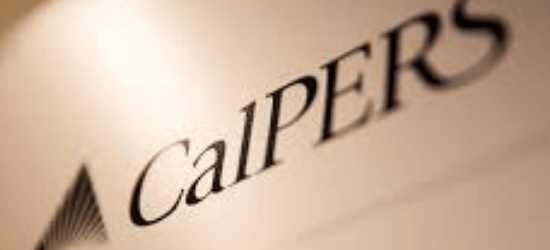The CalPERS board is considering whether to require a new CIO to transfer all of their personal stock holdings into a blind trust while they are a CalPERS’ employee. The move follows the resignation of Ben Meng as CIO last year after an ethics investigation related to some of his personal investments.
In an interview at the Conexus Financial Chair Forum, President of CalPERS Henry Jones said there had been lessons from the experience of Ben’s departure and the board was discussing whether a blind trust was appropriate for the CIO going forward.
CalPERS requires all senior employees to declare their personal investments via a form 700, and to recuse themselves from any decisions around investments they may hold.
Jones said following Meng’s departure the board now shares the responsibility of hiring the fund CIO with the CEO, Marcie Frost. In addition the CEO is required to keep the board informed of any form 700 concerns.
“Hiring a new CIO is an area of high priority for CalPERS right now, we have had multiple CIOs over the past few years,” Jones said. “The experience has changed the governance process and how the board and CEO work together to hire the next candidate. One thing I have to say upfront is our CEO was very transparent with the board in the hiring of Ben Meng and equally so last year when Ben decided to resign.”
Jones said the right candidate would not only have the right investment qualifications but also experience in the public arena.
“The board is focused on the qualifications needed to run a fund of CalPERS’ size, but not only do we need a CIO with the right mix of investment experience, we need a leader who is up to the challenge of being in the spotlight of this very public position.”
Selecting a new CIO is one of two key priorities for the CalPERS board in 2021. The other is the asset liability study which is conducted every four years and includes assessment of the fund’s risk appetite and appropriate strategic asset allocation.
“Our CEO shared our calendar year return of 12.4 per cent at our January board meeting, which was different from our fiscal year return and shows our investment strategy is working,” Jones says. “Much of our focus this year is on the four-year cyclical ALM study and the process will take a fresh look at capital market conditions, our liabilities and risk appetite, and the investment opportunity set available to us as a long-term investor.”
He said the board’s next step was to select a new strategic asset allocation that offers the best risk and return trade-offs. Private equity, which has been a big focus for the fund, will continue to be part of that mix.
The ALM process may also result in the selection of a new policy benchmark and a change to the targeted discount rate, currently at 7 per cent.
The CalPERS board is made up of 13 members and every two years adopts a self-evaluation process.
In the last evaluation, ideas around improved governance, effectiveness and oversight of the system were identified across five areas: board curriculum, roles and responsibilities, meeting materials, code of conduct, and insight tools.
“We have had a few accomplishments already to strengthen the board education program and held five workshops in the last fiscal year,” he said. “Last summer while the US saw a lot of unrest around racism, we held a workshop on unconscious bias and that’s a good example of how the board remains current on relevant subject matters that impact our members.”



